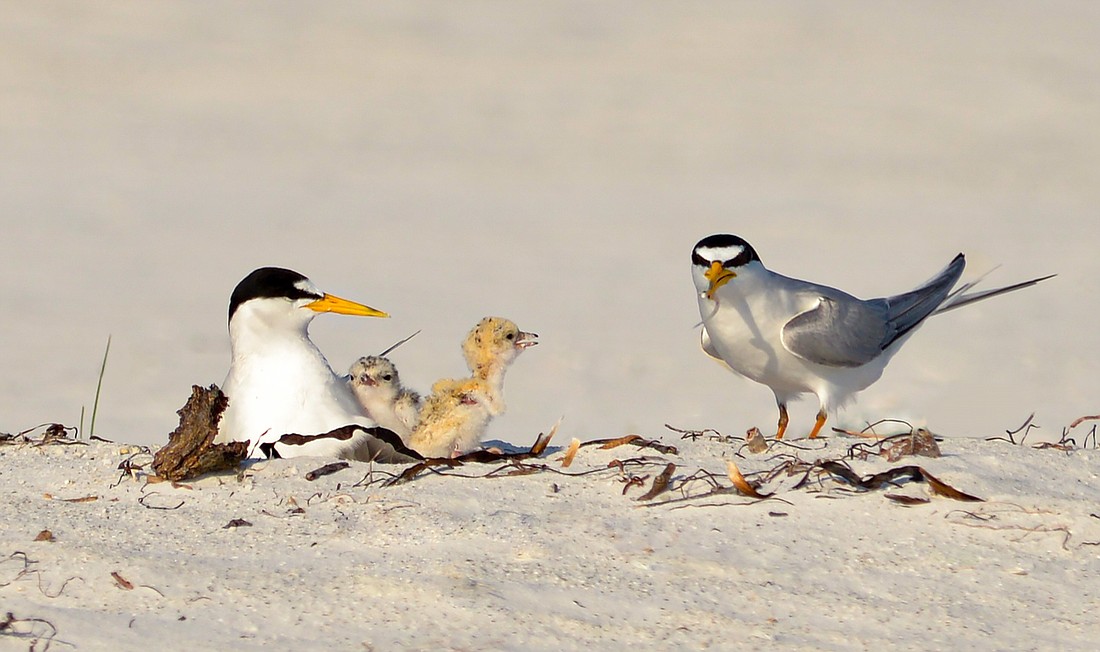- January 28, 2026
-
-
Loading

Loading

Nearly hunted to extinction for their feathers (used to decorate women's hats in the 19th century), least terns are the smallest tern in North America. At 9 inches long and under two ounces, least terns (whose nesting season runs from April until August) will boldly dive at predators much larger than themselves (including humans), to protect their young.
Habitat loss because of coastal development is now the main reason least terns are designated as a threatened species in Florida. And, as they nest directly in the sand, they are also vulnerable to coastal flooding, human recreational activities on the beach and an increase in predators. A single dog or cat can destroy an entire least tern nesting colony.
As a result, least terns have found safer nesting grounds. Presently, 55% of least terns in Florida nest on gravel rooftops. However, as such rooftops are being replaced with new roofs not suitable for nesting, these alternative habitats might not be sustainable.
We are encouraged by another successful nesting season for least terns on Lido Beach. This year's colony was larger than ever (perhaps because least terns didn't nest on Longboat Key beaches this season), with around 250 adults and 64 chicks that fledged (meaning they were able to fly).
When shore-nesting birds are successful, they will return to the same spot season after season. By keeping pets off the beach, packing out trash and giving birds the space they need to thrive, we can look forward to sharing our beautiful beaches with least terns, and all our shore-nesting birds, for many years to come.